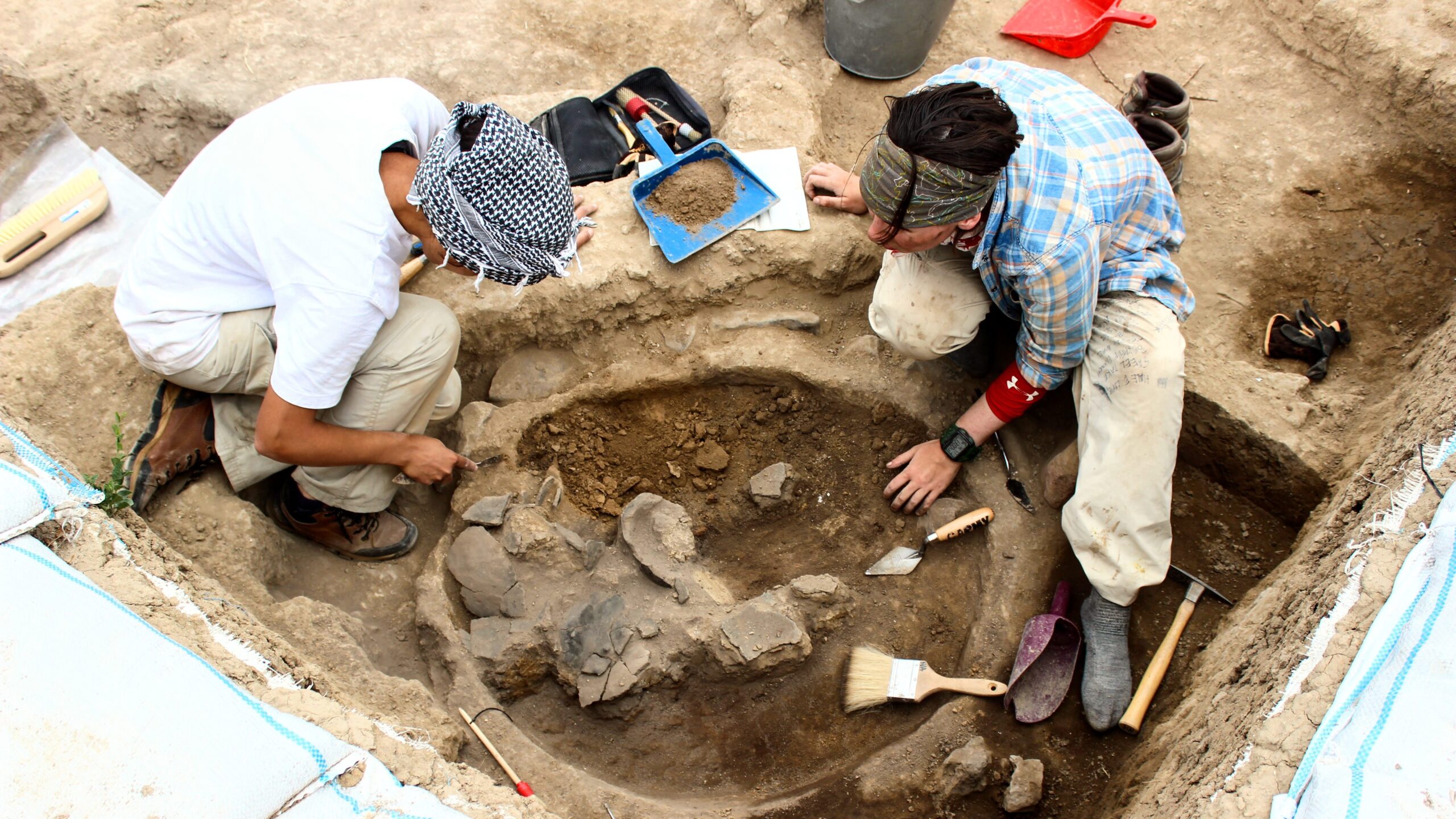Profile:
Field Archaeology, NMC 261
Field Archaeology, NMC261 is a general practicum course for archaeological field methods with a focus on Near Eastern Archaeology. The course consists of a six-week archaeological field school which takes place in the Republic of Georgia. Students contribute to the active and ongoing research program of the Gadachrili Gora Regional Archaeological Project expedition (G.R.A.P.E.). G.R.A.P.E. is part of an international collaborative project investigating the origins of agriculture in the peripheral regions of the Fertile Crescent, specifically the south Caucasus.

Program Details
Instructor / Program Coordinator(s):
Stephen Batiuk, Senior Research Associate, Near & Middle Eastern Civilizations, Faculty of Arts & Science and Khaled Abu Jayyab, Community-Engaged Early Career Fellow, Jackman Humanities Institute
Profile(s):
Faculty & Staff Students
Division:
Faculty of Arts & Science
Benefits to Students:
An archaeological field school immerses the student in their education in a way that cannot truly be achieved in a classroom. While textbooks and lectures can describe the archaeological process, there is little substitute for experiencing the process first-hand. The tactile reinforcement and the identification of the colours, hues and textures that illustrate the difference between archaeological strata, features or artefacts, are best understood through the excavation experience. Additionally, the program allows students of any discipline to see first-hand how fields like botany, geology, geology, chemistry and/or physics all have practical real-world application in the archaeological method. Finally, students experience first-hand international and interdisciplinary collaborative research, and take part in bringing the project to fruition.
Benefits to External Partners and the Community:
Our research has established the Republic of Georgia as the site of the earliest evidence of wine production, earning them the moniker of the “Homeland of Wine”. This has been a long held cultural belief that had not previously been substantiated by scientific fact. Not only has our project been a source of tremendous national pride, but has also provided training to over twenty Georgian Archaeological students, allowing them access to methodologies and technologies they might not easily have access to through their home institutions. Perhaps our greatest contribution has been to the local community of Marneuli. The municipality recognizes the importance of the project not only for personal and historical pride, but also economically. In conjunction with the Municipality of Marneuli, the National Museum and the National Wine Agency, we are building an archaeological park at the two sites, highlighting the important cultural heritage of the region, and preserving the archaeological remains in a way for tourist to be able to properly experience year-round.
Benefits to the University:
The peripheral regions of the Near East, like Georgia, are relatively unexplored and have direct links to the broader Near Eastern archaeological world. In many respects, our project is at the forefront in revealing this. This field school provides a unique opportunity for University of Toronto students in the Faculty of Arts and Science to gain practical archaeological field experience in a Near Eastern context in a safe and unique environment. The field school also provides numerous research and leadership experiences for senior-level students. New technologies, such as drone photography, 3D scanning, photogrammetry, and real-time kinematic survey, are being employed, providing hands-on training for the next generation of U of T Archaeology graduates from all departments in the Faculty. Additionally, data from the project is presently being used by two different Ph.D. projects, and a number of small-scale independent research projects undertaken by senior graduate students have emerged over the last two years.
Information for Interested Students:
Visit the Department of Near and Middle Eastern Civilizations website to find additional information about this course.
Advice for Faculty and Staff Interested in Creating a Similar Experiential Learning Opportunity:
Depending on the size of the project, having staff who truly believe and have a stake in the project makes delegating responsibilities infinitely easier, and provides an extra level of experience for the students. Having strong local institutional backing is also a tremendous help with logistics and execution.
Students on-site at the Gadachrili Gora Regional Archaeological Project expedition (G.R.A.P.E.) (Photo by Dr. Stephen Batiuk)
Details
Partnership Based
Curricular
Unpaid
